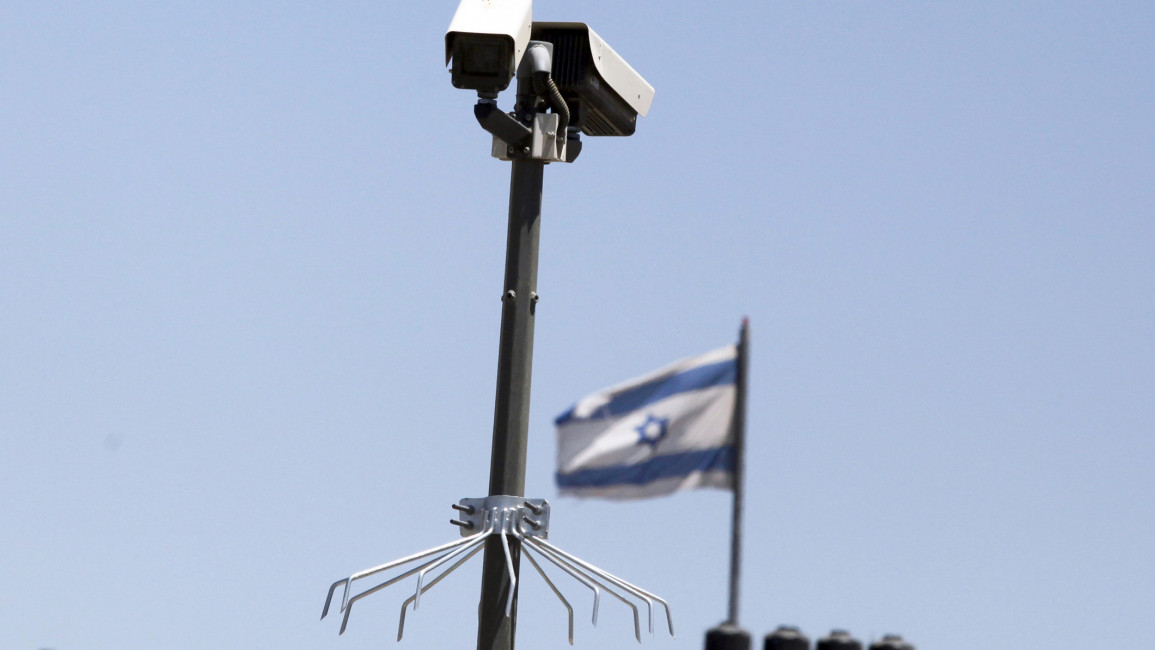Mossad spies, collaborators focus of Israel war on Lebanon, Hezbollah
The issue of collaboration has taken centre stage in Lebanon amid the significant losses suffered by Hezbollah, including the death of key leaders, most notably Secretary-General Hassan Nasrallah.
Before his assassination on 27 September, Nasrallah hinted in his final speech at breaches within Hezbollah's ranks and its close circles, citing Israel's ability to locate "secret" gathering places and obtain accurate information.
According to Lebanese security sources, Israel has recruited a network of collaborators in Lebanon not only to infiltrate Hezbollah and other groups, but also to document the aftermath of hostile airstrikes, monitor search and rescue operations, and confirm the outcomes of these attacks.
In this context, a source from Lebanese Army Intelligence told Al-Araby Al-Jadeed that "security forces have recently arrested several people on charges of collaboration, most of whom are Lebanese and Syrians, with some Palestinians as well. They have been referred to the military court, and security measures have been heightened because Israel has always used this method in its wars against Lebanon, and Lebanon has a history with this."
The source noted that "collaboration is not new, and over 160 agents were arrested in the past few years before the recent aggression. Israel is keen to keep its channels open inside Lebanon and recruit spies to gather information, using it when the time is right, as they are doing today. We are trying to prevent this as much as possible."
The source added that "many agents arrested since the beginning of the aggression were present in areas targeted by Israeli bombing, especially in Beirut's southern suburbs. They were monitored and found documenting the aftermath of the destruction and the rescue operations. They stayed for extended periods, recording all the details, which raised suspicions. They were subsequently arrested, questioned, and their electronic devices were confiscated."
The source mentioned that "most of these individuals are lured through the internet and social media, where initial contact is established, and large sums of money are offered in exchange for providing security information, particularly regarding Hezbollah, Lebanese locations, and official institutions."
According to the Lebanese Army, the enemy also posts content on social media platforms, such as videos, links, and apps, to lure citizens into specific sites for spying, information gathering, or recruiting agents.
This article is an edited translation from our Arabic edition, Al-Araby Al-Jadeed

![Sabra neighbourhood strikes [Getty]](/sites/default/files/styles/image_684x385/public/2185030803.jpeg?h=a5f2f23a&itok=6AkMT_OO)




 Follow the Middle East's top stories in English at The New Arab on Google News
Follow the Middle East's top stories in English at The New Arab on Google News
![Kamal Adwan Hospital [Getty]](/sites/default/files/styles/image_330x185/public/2184363931.jpeg?h=38d368d7&itok=LTbDYIDB)
![Dr. Oz [Getty]](/sites/default/files/styles/image_330x185/public/1439815830.jpeg?h=a5f2f23a&itok=Zy8wCmpv)
![Gaza casualties [Getty]](/sites/default/files/styles/image_330x185/public/2149262510.jpeg?h=a5f2f23a&itok=XODmAM9t)